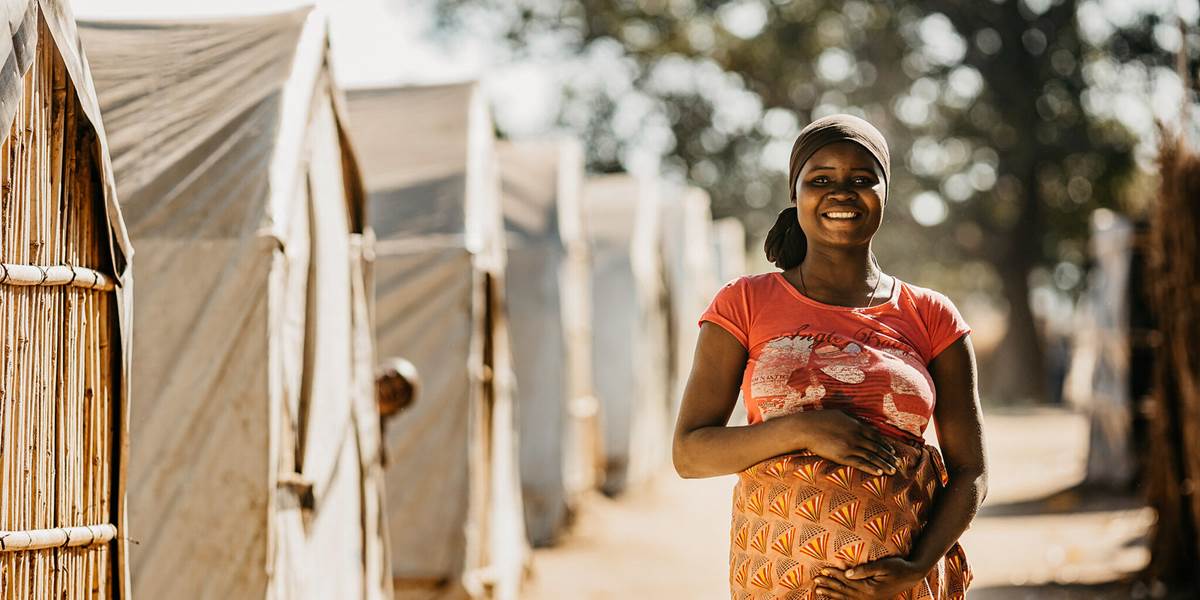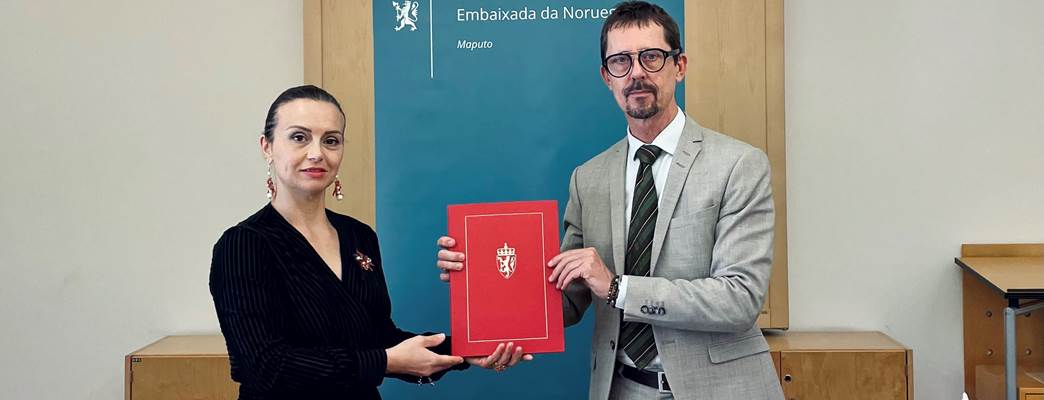The agreement was signed by the Ambassador of the Kingdom of Norway to Mozambique, H.E. Mr. Haakon Gram-Johannessen, and UNFPA Mozambique’s Resident Representative, Bérangère Boëll.
Ensuring that those most vulnerable are not left behind, the multi-year project (running until December 2024), bridges immediate service delivery with resilience-building efforts to reduce unmet needs, lessen long-term risks and improve development outcomes. The project will support more than 400,000 people, with a focus on women of reproductive age, adolescents, youth, and persons with disabilities, from host and displaced communities across Cabo Delgado, Nampula, and Niassa provinces.
“Sexual and reproductive health and rights (SRHR) is a priority in Norwegian development cooperation, and we are therefore pleased to support UNFPA’s important efforts. A person’s right to a healthy body and the autonomy, education and healthcare to freely decide who to have sex with and how to avoid sexually transmitted infections or unintended pregnancy are essential for human development and achievement of the SDGs,” says the Ambassador of the Kingdom of Norway to Mozambique, H.E. Mr. Haakon Gram-Johannessen.
Contributing to the Government of Mozambique’s recovery and resilience strategies for the northern region, the project will link humanitarian interventions with the strengthening of systems and capacity building to ensure the continuity of SRH and GBV services across a Humanitarian-Development-Peace nexus (HDPN) approach that supports long-term sustainable solutions for the northern region.
The project will also increase the use of disaggregated data to identify gaps in service quality, delivery, and accessibility, and inform evidence-based decision and policy making that puts vulnerable women, girls, and youth at the forefront of implementation.

“One in four people displaced by the conflict are women of reproductive age. Their needs cannot be ignored, and as the conflict continues, their vulnerability and exposure to gender-based violence and health-related complications increase dramatically. UNFPA extends its appreciation to the Government and people of Norway for its investment towards development and peace in the north by prioritizing those who are often left furthest behind: women, girls, and youth,” affirms UNFPA Mozambique’s Resident Representative, Bérangère Boëll.
The current closure of health facilities in eight conflict-affected districts has impacted more than half a million people, including displaced women who face a greater risk of complications during childbirth without access to obstetric care, as well as female survivors of violence who may experience greater vulnerabilities without immediate access to protection services or post-rape care.
In response, the project will deploy maternal and child health nurses and mobile brigades to provide integrated sexual and reproductive health services; equip restored health facilities with essential supplies; and strengthen referral systems and the ‘one-stop centers’ for the prevention and response to gender-based violence, among other key activities.
Globally, Norway is among UNFPA’s top five donors, ranking second in contributions to UNFPA’s core financing in 2021. In Mozambique, UNFPA has maintained years of partnership with Norway with funding for projects focused on the COVID-19 response, recovery from Cyclones Idai and Kenneth, the 2017 Population and Housing Census and a United Nations joint program focused on the protection of persons with albinism.
###
